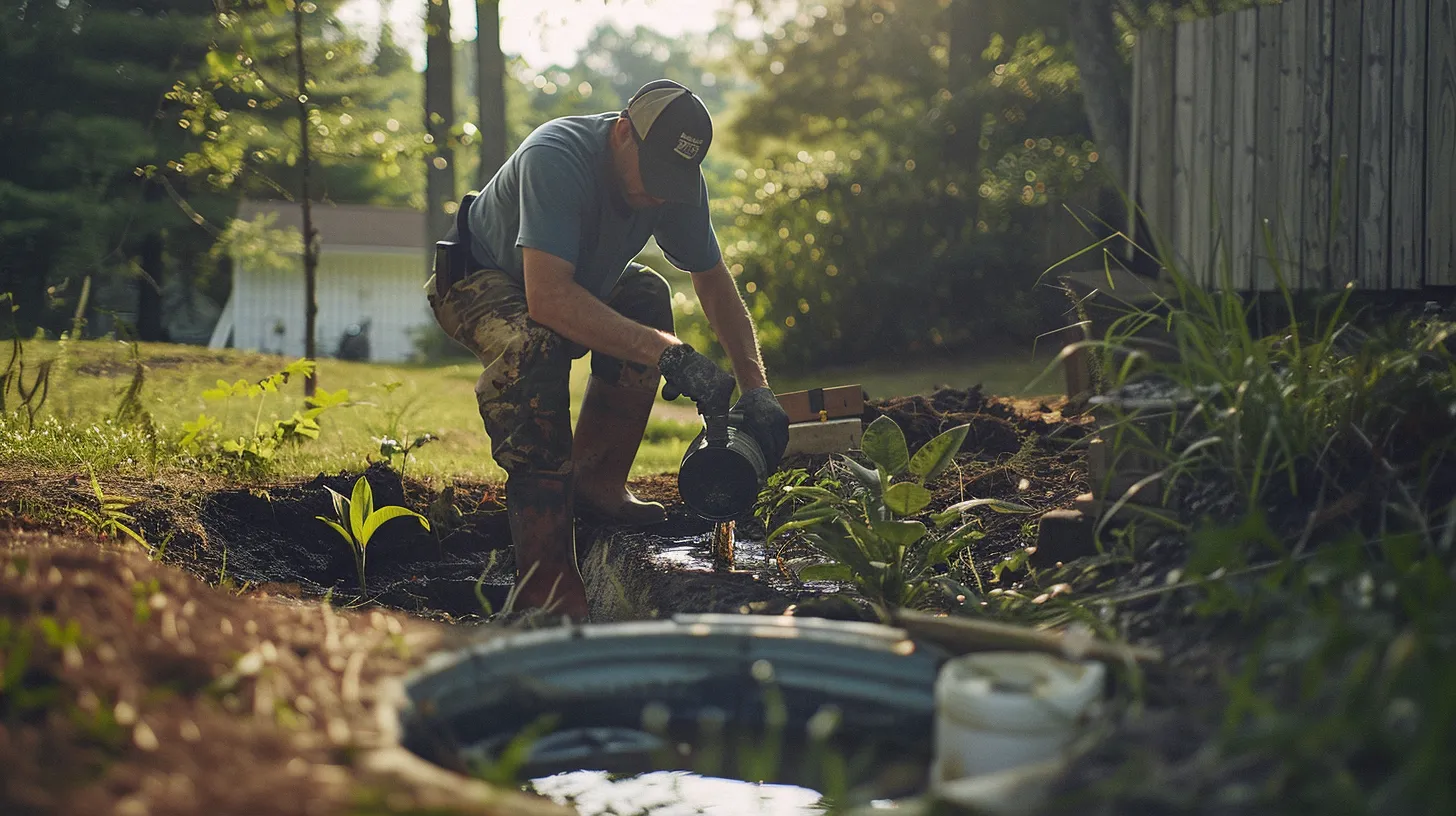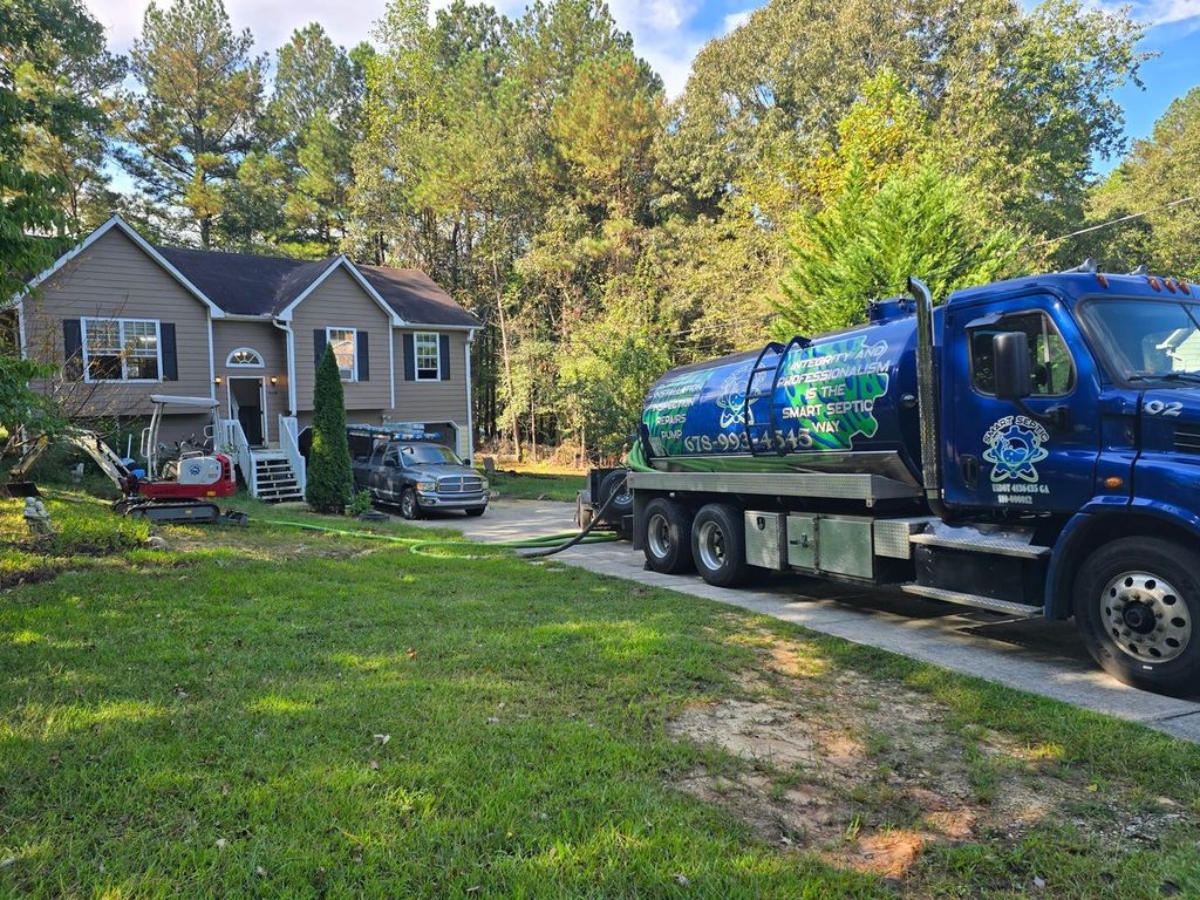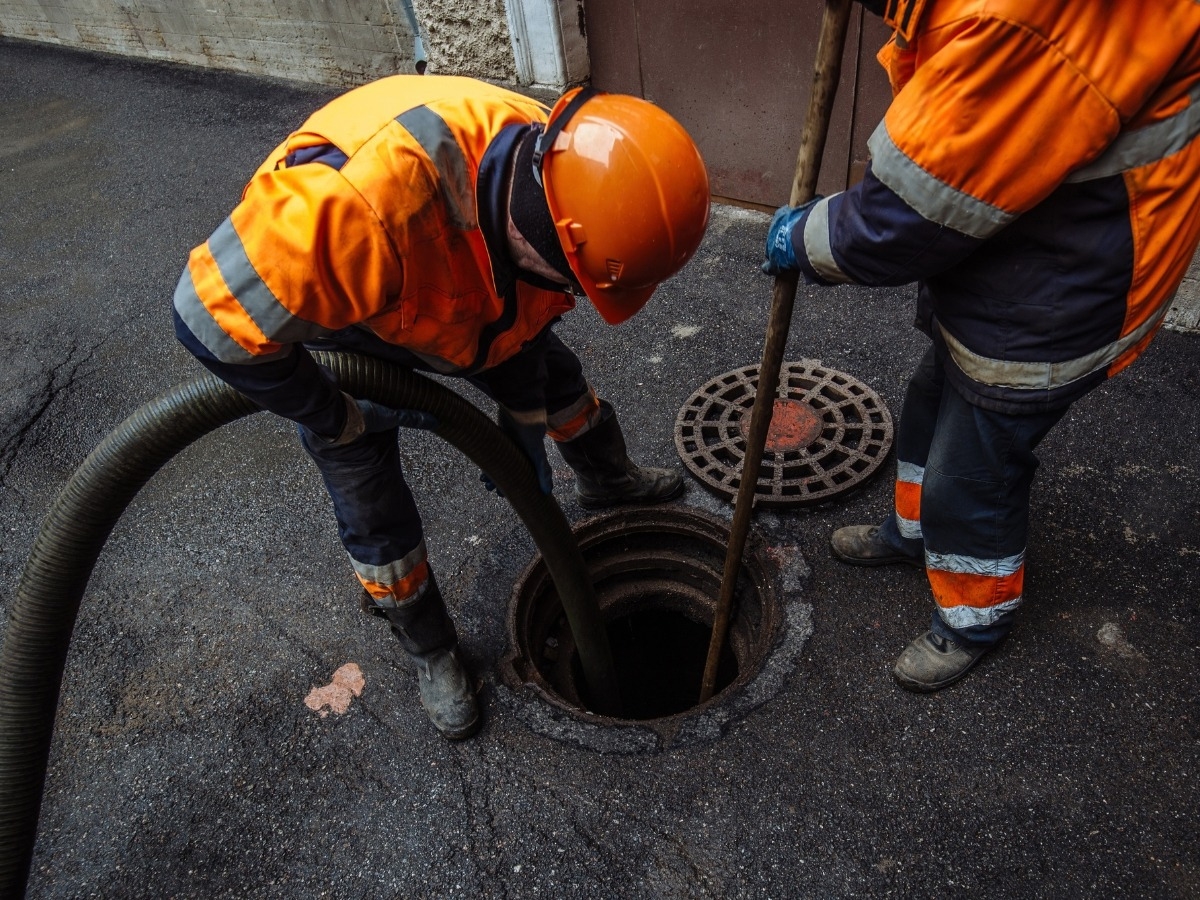Is your septic system causing you worry? In Georgia, proper maintenance of septic systems is crucial for homeowners. This guide will cover a guide of essential DIY septic system maintenance Georgia homeowners need, including inspecting tank components and maintaining drainfields. By following these tips, you’ll learn how to prevent costly repairs and ensure your septic system functions efficiently. We’ll also highlight warning signs of potential issues, helping you address problems before they escalate.
DIY Septic System Maintenance Georgia Homeowners Can’t Afford to Skip
Understanding the Importance of DIY Septic System Maintenance in Georgia
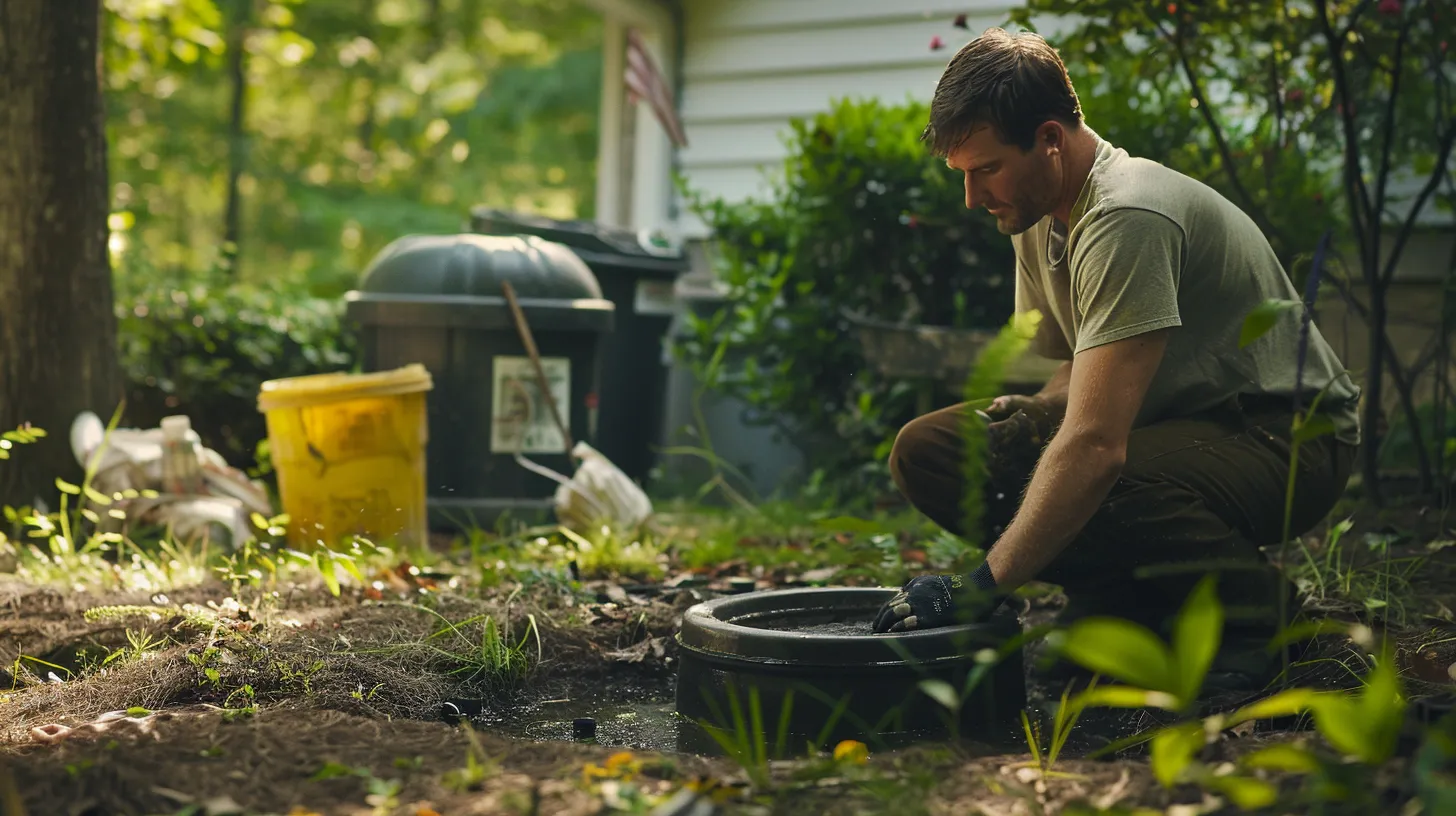
Georgia homeowners with septic systems must prioritize regular maintenance and septic tank pumping to ensure optimal performance. Proper septic tank maintenance prevents soil contamination and extends the system’s lifespan. Neglecting these tasks can lead to costly repairs and environmental issues.
DIY septic system care includes monitoring water usage and being mindful of what enters the tank. Homeowners should avoid flushing non-biodegradable items down the toilet and use septic-safe cleaning products. These simple practices contribute significantly to the system’s longevity.
Regular inspections and septic tank maintenance are crucial for identifying potential problems early. Homeowners can perform visual checks of their drain field and look for signs of trouble, such as slow draining or foul odors. For comprehensive care, septic tank repair services are available. Professional inspections every 3-5 years complement these DIY efforts by including septic tank pumping, septic tank installation, and septic tank financing options.
Educating family members about proper septic system use is essential. Homeowners can create a maintenance schedule and keep records of all septic-related activities. For more information, they can reach out via email address or phone for advice on Georgia-specific maintenance practices.
Identifying Common Septic System Components in Georgian Homes
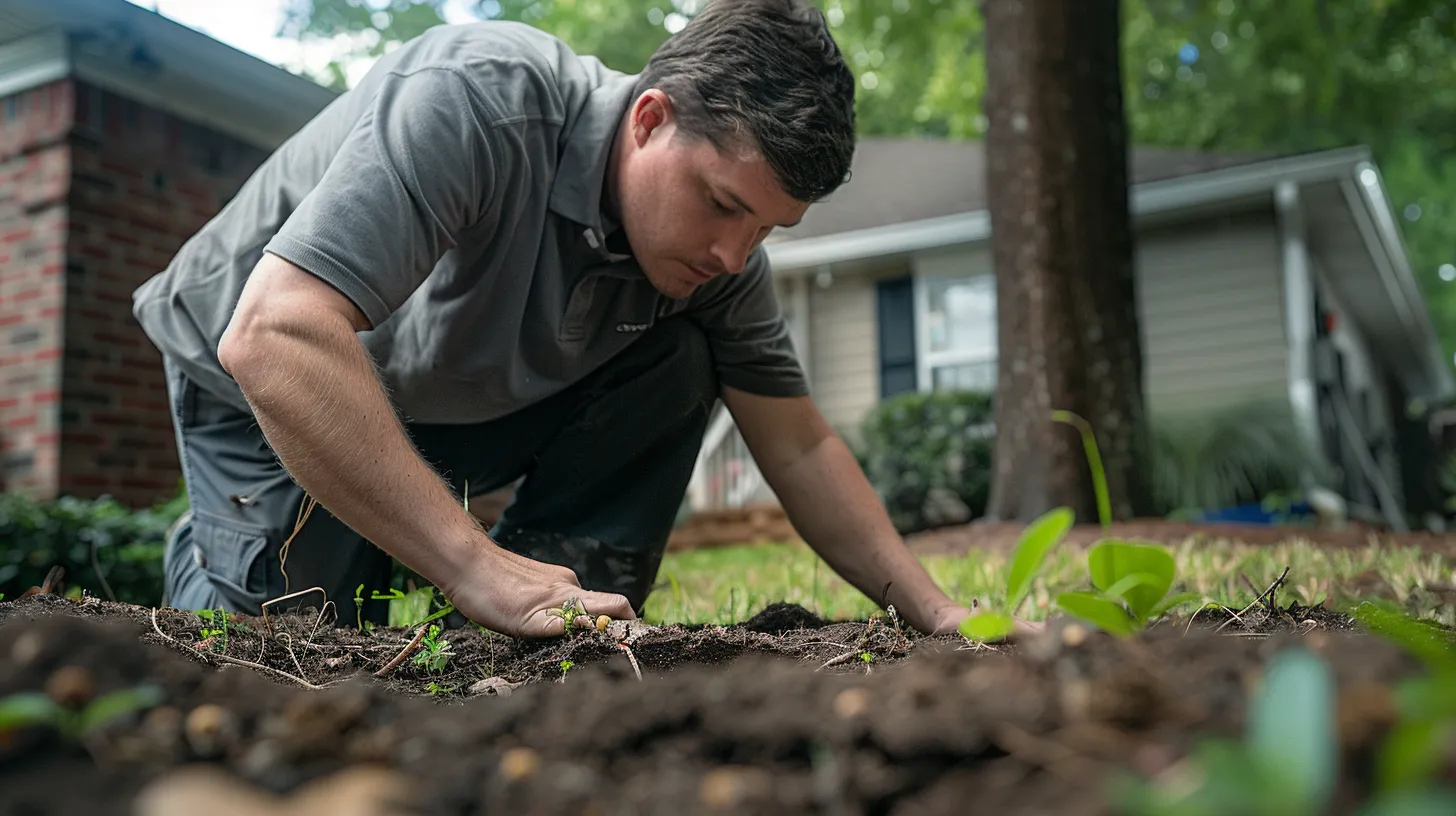
Georgian homes with septic systems typically feature a tank, a drain field, and a distribution box. The tank collects wastewater, allowing solids to settle while effluent flows to the drain field. Understanding these components is crucial for effective DIY septic tank maintenance and septic tank pumping for customer satisfaction.
The drain field, also known as a leach field, is where the final treatment of wastewater occurs. It consists of perforated pipes that distribute effluent into the soil for natural filtration. Proper drainage in this area is essential for system functionality and environmental hygiene.
In metro Atlanta and surrounding areas, septic systems may include additional components like pumps or filters. These elements help manage wastewater flow and improve treatment efficiency, especially in areas with challenging soil conditions or high water tables.
Homeowners should familiarize themselves with their system’s layout and components. This knowledge aids in routine septic tankmaintenance checks, septic tank pumping, and septic tank installation, and helps identify potential septic tank repair issues early, ensuring optimal performance and longevity of the septic system.
Georgian homeowners know their septic systems inside and out. Now, it’s time to roll up your sleeves and inspect that tank yourself.
Essential Steps for DIY Septic Tank Inspections
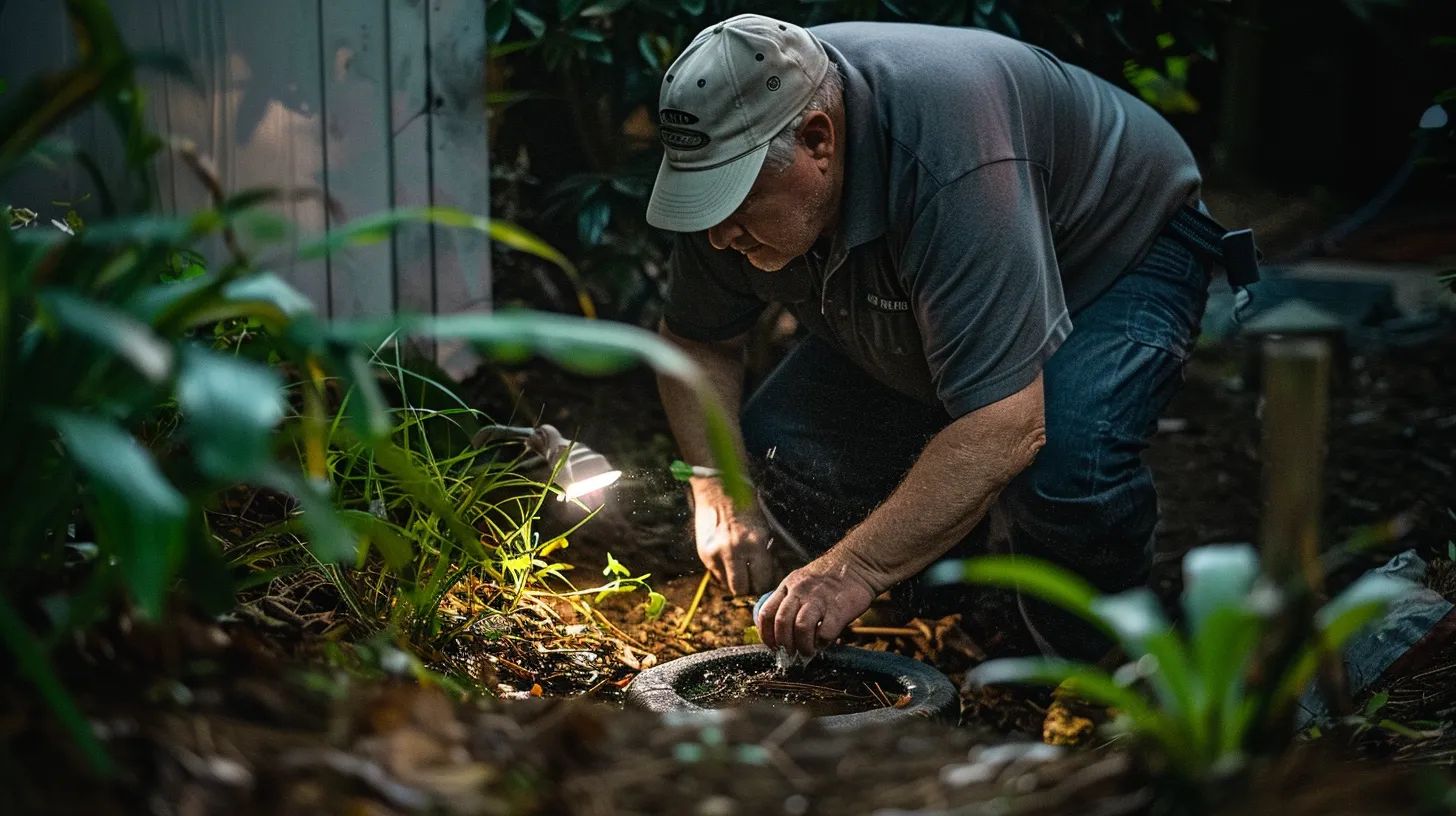
Regular septic tank inspections are crucial for maintaining a healthy system. Regular septic tank maintenance helps prevent issues. Homeowners should check for signs of backup or slow drainage in their sanitary sewer lines, which may indicate potential issues with the septic tank or pump.
Visual inspections of the drain field can reveal problems such as standing water or unusual odors. These signs often suggest that the septic system requires immediate attention or professional septic tank maintainence.
Homeowners must monitor their household chemical usage, as excessive amounts can disrupt the bacterial balance in the septic tank. Proper disposal of grease and other non-biodegradable materials is essential to prevent system clogs.
Keeping detailed records of septic tank pumping, inspections, and septic tank maintainence activities helps track the system’s health over time. Additionally, our septic tank installation services ensure the proper setup of your system. This information proves valuable for identifying patterns and predicting future septic tank repair and septic tank financing needs.
Inspections lay the groundwork, but drainfields demand attention. Proper functionality ensures your system’s longevity and protects your property.
Effective Practices for Ensuring Proper Drainfield Functionality
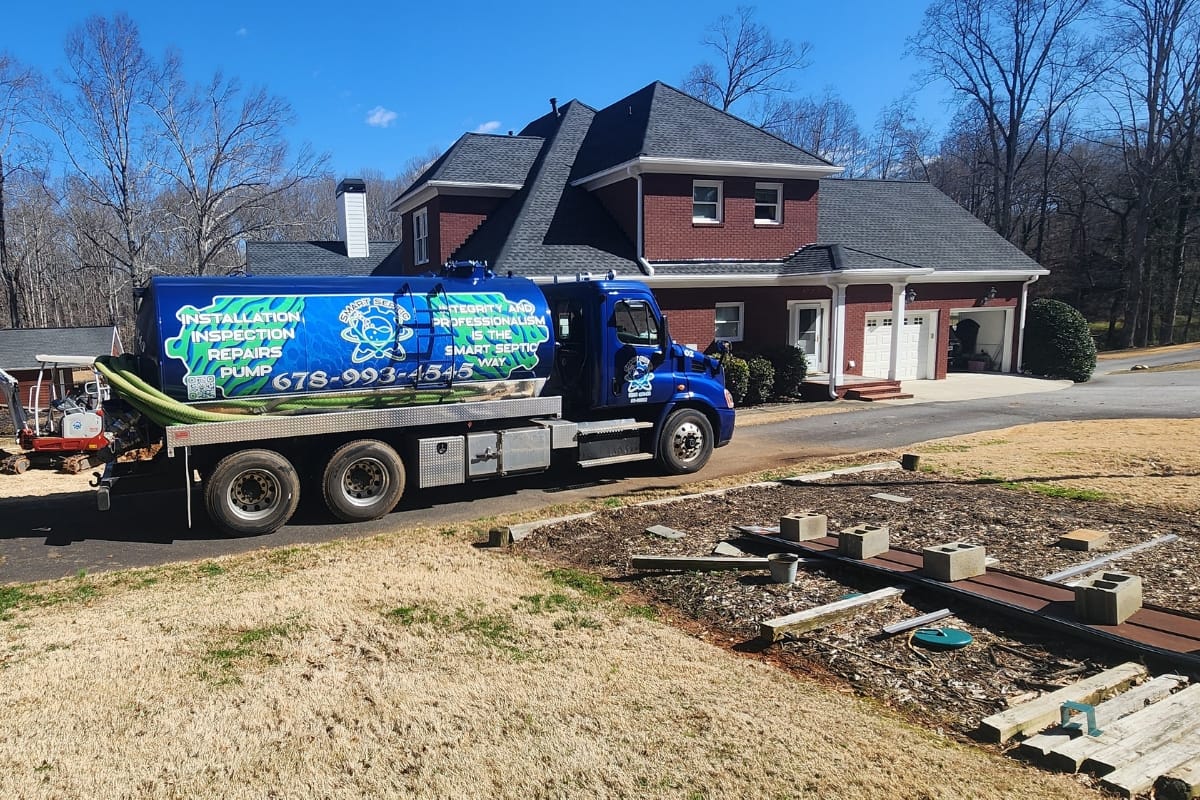
Proper maintenance of the septic drain field is crucial for system longevity. Homeowners should conduct regular inspections and septic tank pumping, looking for signs of saturation or unusual odors. These indicators often suggest the need for septic tank repair or septic tank maintenance.
Controlling water usage helps prevent overloading the drain field. Installing water-saving fixtures and fixing leaks promptly can significantly reduce strain on the system. Homeowners should also avoid parking vehicles or placing heavy objects on the drain field area to prevent soil compaction. For optimal performance, regular septic tankmaintenance and septic tank pumping are essential.
Landscaping practices play a vital role in drain field health. Planting shallow-rooted vegetation and directing rainwater away from the area helps maintain proper drainage and supports septic tank maintenance, including septic tank pumping. For more information, contact us for septic tank repair or septic tank installation. Homeowners should avoid planting trees or shrubs with invasive root systems near the drain field.
In addition to spotting early symptoms of failure, it’s important to understand how septic systems function and why preventative care matters. A typical residential septic system includes a septic tank, a distribution box, and a drain field. Wastewater from household plumbing enters the septic tank, where solids settle to the bottom and scum floats to the top. The remaining liquid, or effluent, flows into the drain field for natural filtration through soil. When any part of this system becomes compromised—whether by overuse, lack of maintenance, or root infiltration—it can disrupt the entire process.
Georgia’s clay-heavy soil and periods of heavy rain can create unique challenges for septic system performance. Excessive water around the drain field can lead to system overload, while compacted soil can hinder proper percolation. Homeowners should avoid parking vehicles or placing heavy objects on or near the drain field, as pressure can compact the soil and damage underground components.
Routine inspections by licensed professionals are one of the most effective ways to prevent major septic issues. During an inspection, a technician will evaluate sludge and scum levels, check for leaks, and ensure the system is functioning as designed. Most septic tanks should be pumped every three to five years, but usage habits, household size, and system design can all influence this timeline.
Conserving water is another important preventative measure. Spacing out laundry loads, fixing leaking faucets, and installing low-flow fixtures can reduce the amount of wastewater entering the tank. Additionally, it’s crucial to be mindful of what goes down the drain. Harsh chemicals, grease, and non-biodegradable items can disrupt the bacterial ecosystem in the tank and accelerate wear on the system.
Homeowners in Georgia should also keep accurate records of all septic maintenance and repairs. This documentation is useful not only for staying on top of service schedules but also for property transactions or building permits. Having a well-documented history of septic care can add value to a home and offer peace of mind to potential buyers.
Ultimately, being proactive about septic system care saves money, extends the life of the system, and protects the environment. Partnering with a reputable local septic company ensures access to expert advice, reliable service, and long-term support tailored to the needs of Georgia homeowners.
Regular septic tank pumping prevents excess solids from entering the drain field. This proactive approach helps identify potential issues before they escalate into costly septic tank repairs:
| Maintenance Task | Frequency | Importance |
|---|---|---|
| Drain field inspection | Annually | High |
| Water usage monitoring | Ongoing | Medium |
| Landscaping maintenance | Seasonally | Medium |
| Septic tank pumping | Every 3-5 years | High |
Georgia‘s seasons shape the land and our septic systems. Let’s explore how to adapt our maintenance as the weather changes.
Seasonal Maintenance Tips for Georgia‘s Climate
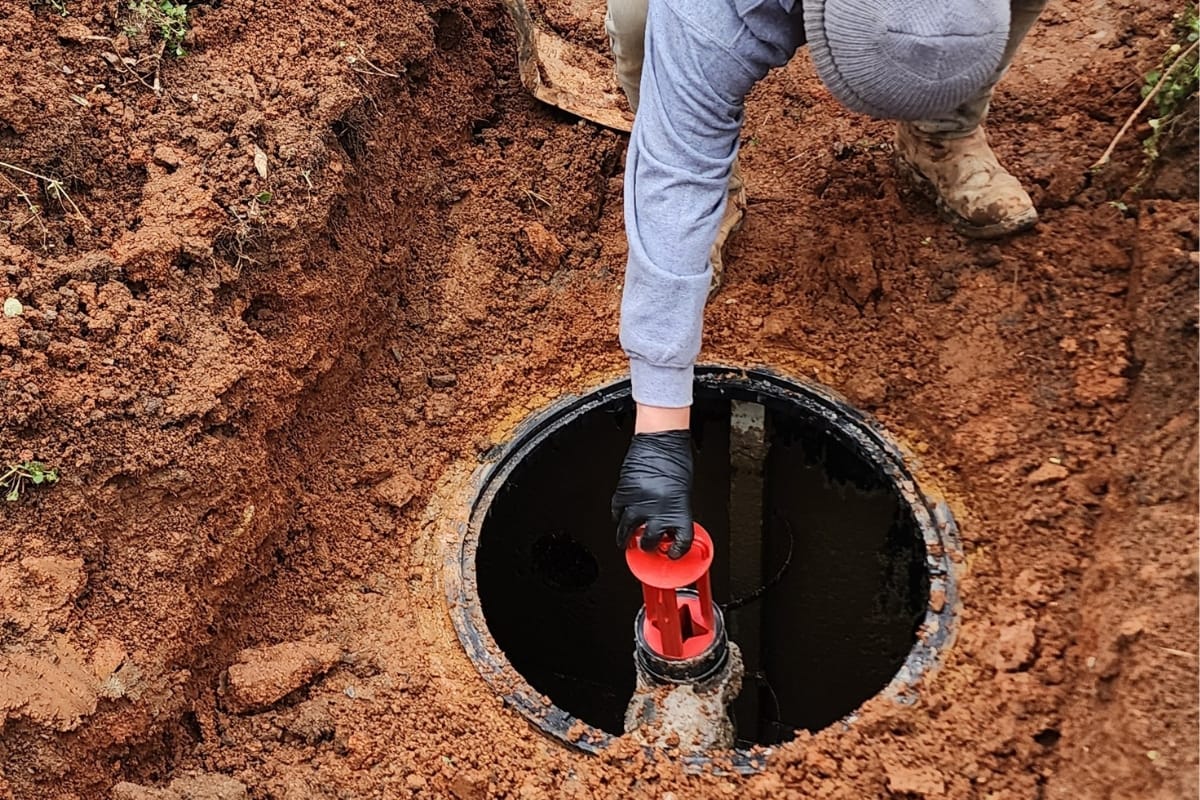
Georgia’s hot summers can strain septic systems. Homeowners should monitor water usage, especially when running taps for extended periods. Smart Septic Pros recommends spreading out laundry loads and showers to prevent system overload.
In fall, homeowners should inspect their drain fields for signs of stress and perform septic tank maintenance. Clearing fallen leaves and debris helps maintain proper drainage. Additionally, septic tank pumping, septic tank repair, and septic tank installation can prevent more significant issues. This is also an ideal time to schedule a professional inspection before winter.
Winter brings unique challenges to septic systems. Homeowners should insulate exposed pipes and the septic tank to prevent freezing. Regular septic tank maintenance can ensure proper function during cold months. They should also avoid compacting snow over the drain field, which can impede proper sewage treatment.
Spring thaws can lead to saturated soil, potentially affecting septic system performance. Homeowners should check their basements for signs of backup and ensure proper drainage around the property. Regular septic tankmaintenance, septic tank pumping, septic tank repair, and septic tank installation can help prevent seasonal issues. Additionally, consider regular septic tank maintenance to ensure long-term system health.
Seasonal care keeps septic systems running smoothly. But problems can arise even with regular maintenance.
Recognizing Warning Signs of Septic System Issues
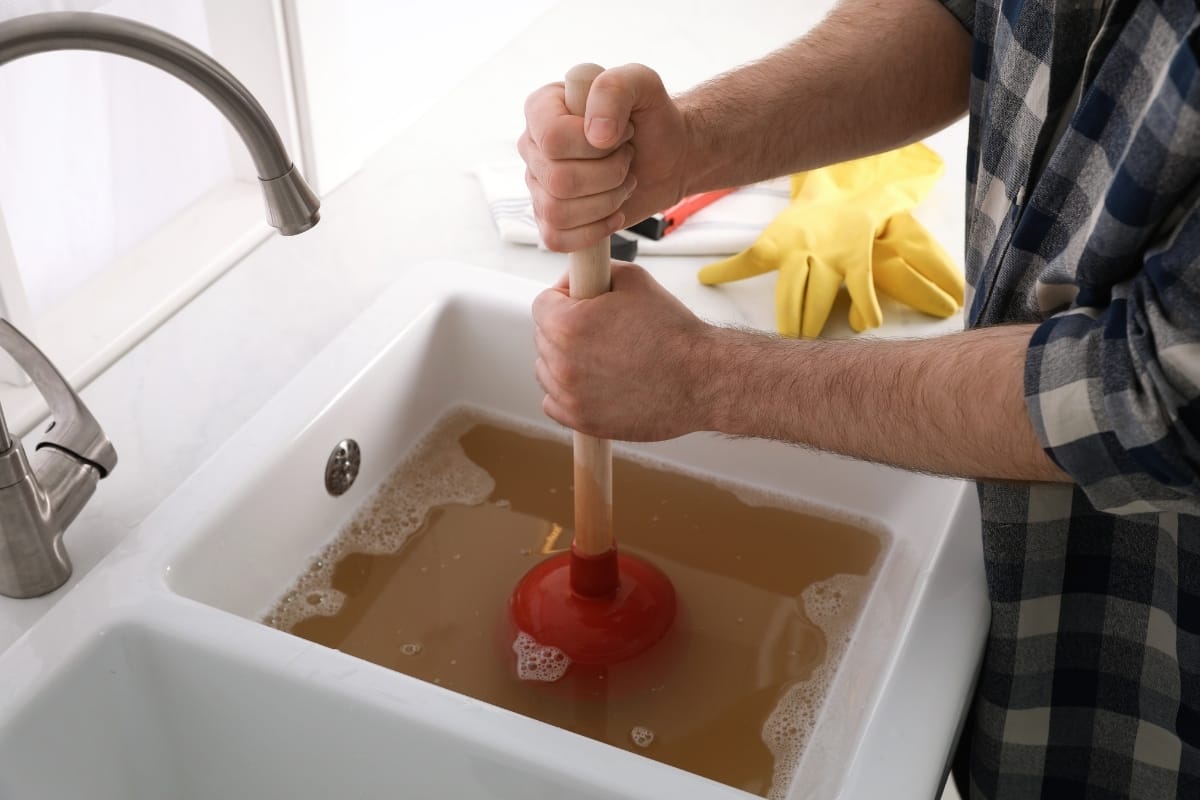
Foul odors near the drain field or slow-draining plumbing fixtures often indicate septic system issues. Homeowners should monitor these signs and contact a professional if problems persist.
Gurgling sounds in pipes or toilets may suggest a buildup of sludge in the septic tank. Regular addition of septic-safe enzymes can help maintain a healthy balance of bacteria and prevent excessive sludge accumulation. For optimal results, ensure regular septic tank maintenance and septic tank pumping.
Wet spots or unusually lush vegetation in the drain field area can signal septic system malfunction. Prompt septic tank repair, septic tank pumping, and septic tank maintenance are crucial to prevent further damage and potential environmental hazards. Sewage backups in home plumbing systems require immediate attention. Homeowners experiencing this issue should contact a septic professional immediately to assess and address the problem.
Knowing the warning signs is only half the battle. Georgia homeowners can find expert help and guidance to keep their septic systems running smoothly.
Resources and Support for Georgia Homeowners Managing Septic Systems
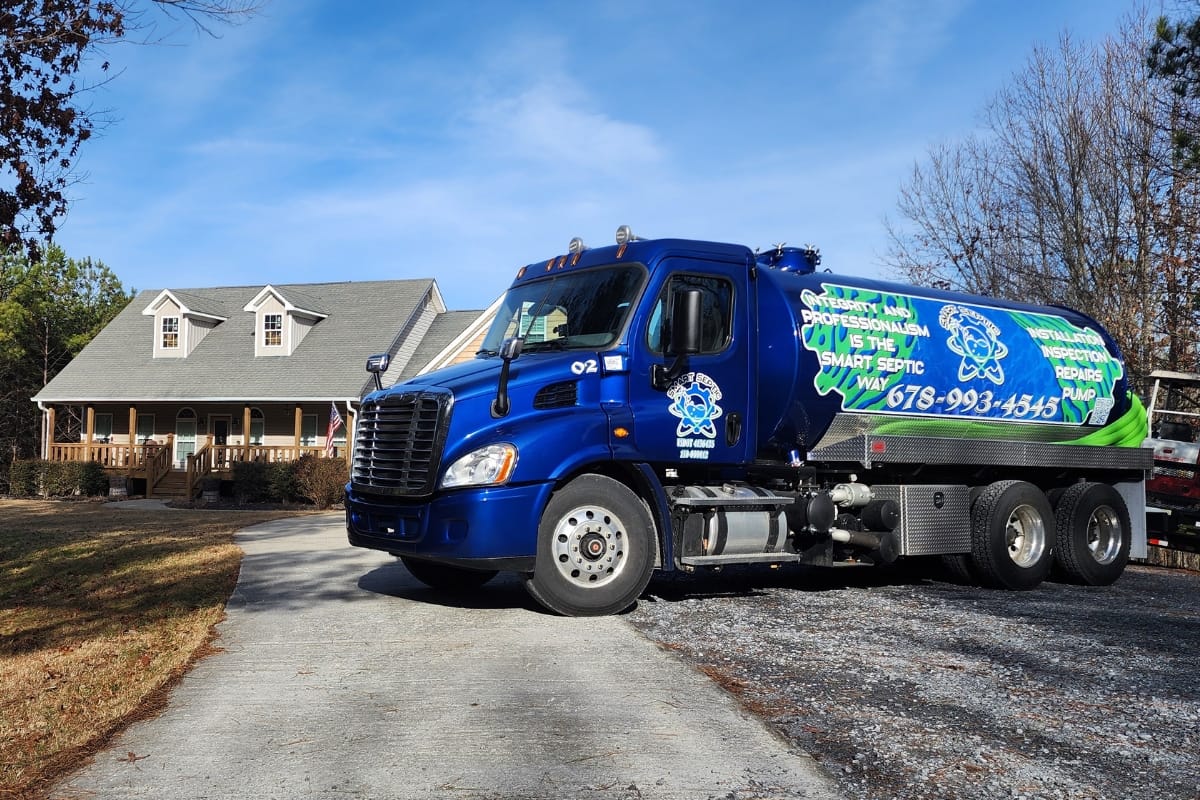
Georgia homeowners can access valuable resources for septic system maintenance through local health departments and environmental agencies. These organizations provide guidelines on proper septic tank inspections, septic tank repair, septic tank pumping, septic tank installation, pipemaintenance, septic tank maintainence, and treeroot management near drain fields.
Online resources, including blogs and educational websites, offer practical tips for DIY septic system care in Georgia‘s unique climate. Homeowners can find information on topics such as water conservation, appropriate cleaning products, septic tank maintainence, septic tank pumping, and seasonal maintenance routines.
Professional septic service companies in Georgia offer support through regular inspections, septic tank pumping, and emergency septic tank repair. These experts can provide tailored advice on septic tankmaintenance, septic tank installation, and septic tank financing in various soil conditions across the state.
Local hardware stores and home improvement centers often stock septic-safe products and tools for basic system maintenance, septic tankmaintenance, and septic tank installation. Homeowners can find bacterial additives, drain field treatments, equipment for minor repairs, septic tank repair, and septic tank pumping to support their DIY septic care efforts. A
Frequently Asked Questions
How often should Georgia homeowners inspect their septic systems?
Georgia homeowners should inspect their septic systems every 3 to 5 years. Regular inspections help prevent costly failures, ensure proper functioning, and extend system lifespan. Factors like household size, water usage, and system age may necessitate more frequent checks.
What are the key components of a typical septic system in Georgia?
A typical septic system in Georgia consists of a septic tank, distribution box, and drain field. The tank separates solids from liquids, while the distribution box evenly disperses wastewater to the drain field for natural filtration through soil layers.
How can I maintain my septic drainfield in Georgia‘s climate?
To maintain your septic drainfield in Georgia‘s climate, regularly pump your tank, conserve water, avoid flushing non-biodegradable items, divert rainwater away from the field, and avoid planting trees near the system. Inspect annually and address issues promptly to prevent soil saturation and system failure.
What warning signs indicate potential septic system problems?
Key warning signs of septic system issues include foul odors, slow draining fixtures, gurgling sounds in pipes, wet or spongy areas in the yard, and sewage backup. Lush vegetation near the drain field and water pooling around the septic tank can also indicate problems requiring professional inspection.
Where can Georgia homeowners find resources for septic system maintenance?
Georgia homeowners can find septic system maintenance resources through the Georgia Department of Public Health, local county health departments, and certified septic service providers. These sources offer guidelines, inspection services, and educational materials to help homeowners properly maintain their septic systems and comply with state regulations.
The Importance of DIY Septic System Maintenance for Georgia Homeowners
While DIY maintenance can help extend the life of your septic system, nothing replaces professional inspections and servicing. Smart Septic Pros provides expert septic care to Georgia homeowners, ensuring your system operates efficiently and avoids costly failures. From routine pumping to emergency repairs, our certified technicians have the skills and equipment to handle it all. Don’t wait for a backup to become a crisis—schedule service today! Call 678-993-4545 or fill out our online contact form for prompt, reliable septic solutions you can trust.
